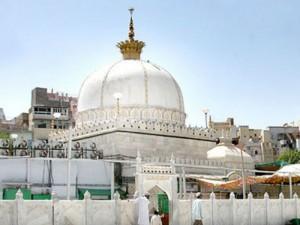Sufi Conference or a Plan to Create Rift among Muslims?

Hasan Kamal
A major International Sufi Conference is going to be organised in the capital of the country.
Sufism is the name of a search of spiritual relationship, from one’s birth till the end of one’s life, between the Creator and His servants; and is a very venerable effort to strengthen that spiritual relationship between the two.
Sufism is also the name of that sublimity after reaching which one, in Ameer Khusro’s words blurts out: Mun tu shudam tu mun shudi, Mun tun shudam tu jaan shudi.Taa kas na goyad baad azeen, Mun deegaram tu deegari. [I have become you, and you have become me, I am the body, you are the soul; So that no one can now say, that you are someone, and me someone else.]
Because Sufism looks the reflection in everything of the One about Whom is said الله جميل يحب الجمال (Allah is beautiful and He loves beauty). Thus Sufism has embraced in itself all forms of worldly arts and has blessed them with charming attraction.
If the touch of Sufism is taken away from Persian and Urdu poetry then both will become an exercise devoid of any charm and very dry and tasteless. It were the high values of Sufism that rendered immortality to the poetry of Maulana Roum, Saadi, Hafiz, Khusro and Kabeer, Nazeer and Meer and Ghalib.
Therefore, any step to celebrate and refresh the high values and virtuous traditions of Sufism should be valued and welcomed.
Unfortunately this is not what is happening. For a variety of reasons the proposed conference seems engulfed in a variety of controversies even before it is started.
The first point being raised is that foreign dignitaries coming to attend this conference will be lodged in Taj while local guests will be boarded in other five star hotels like Maurya Sheraton and luxurious and high class arrangements are being made for their comfortable stay and travel.

Some observers see a contradiction in it. They say that the most glittering aspect of Sufism is that Sufis, as their tradition dictates, have disdained and have always refrained from pompous show and use of luxuries associated with the crown and the upper echelon of the society. They used to be an epitome of simplicity, abstinence and self-denial that gave them the magnetic attraction that drew everyone towards them. They practiced humility and humbleness and denied themselves of all worldly charms and needs.
In response some argue that in fact this is not a conference of the Sufis themselves but a conference of those people who believe in the greatness of Sufism wherein Sufis regard themselves as ‘dogs of the world’.
Even more controversial news about this conference is that, allegedly, the plan of this conference is the result of the efforts under the umbrella and guidance of Prime Minister Narendra Modi’s Security Advisor Ajit Doval, his political advisor Subramunyam Swami and some ‘Dignitaries of the community’.
It may be that, Prime Minister Narendra Modi, who had once refused to put on his head a cap that was presented to him by some Muslims, has now decided to address this conference. Subramaniam Swami’s view that sectarian differences among Muslims have reached to such a climax that it won’t take much to make them fight each other, is not a secret; nor does he hide it. A small spark is enough to make this pile of dynamite explode.
It is their [of the above mentioned personalities] association with this conference that is creating doubts and suspicions about it. This is also being quoted that one of the proposals to be passed by the conference is the declaration that excepting one particular sect, all of the other sects of Indian Muslims promote extremism and encourage terrorism.
If what is being said is true then obviously a common Muslim’s anxiety is not unnatural and uncalled for. In no court of law has it ever been proved nor is there any indication that any terrorist has taken to terrorism after being influenced by a particular sect of Muslims.
Similarly an effort is also being made to present Sufism as the antithesis of Shari’ah. Therefore first of all it is necessary to remove the misgiving that Sufism negates Shari’ah and Shari’ah rules. For some time efforts have been made to create an impression that Sufis do not care about Shari’ah. This is a clear cut plan to create divisions. This is not true and is simply a fabrication.
In the long list of Sufis, the origins of whom goes back to Khawaja Abdul Qadir Jilani, as a matter much earlier than him, can anyone point out any of those Sufi who had ever violated the fundamental requirements of Shari’ah like belief in the oneness of Allah SWT, Prophet hood of Muhammad (PBUH), performance of prayers, fasting, Hajj and paying Zakah? On the contrary what is said about these pious personalities is that they were friends of Allah who spent their nights in offering Tahajjud prayers. They devoted their lives to the remembrance of Allah, His zikar, and His worship. About Hazrat Nizamuddin Aulia it is said that he lived a life of extreme austerity. He taught children Qur’an and Islam and such was the level of his abstinence and self-denial that during Ramadan often he did not have anything to eat so he broke his fast with water and thus started his fast for the next day through.
Only about Haji Waris Ali Shah of Dewa Shareef it is said that after reaching a certain level of devotion and knowledge, for a very brief period he stopped praying. But this was a very brief phase and later he resumed offering Tahajjud as his usual. (This inscribe knows about this incident as Hazrat Waris Ali Shah was the real cousin and foster brother of his grandmother Ashrafunnisa and this event is recorded in inscribe’s family tree ‘Makhdoom Zadgan-e-Fatehpur, Barabanki. Allah knows better).
Innumerable Muslims owe their faith in Islam to the greatness of these Sufis and are therefore grateful to them. The credit of propagating and publicising Islam in the subcontinent goes to them and not to any King and his majestic rule. The credit of this great achievement goes to Sufis who ruled the hearts of the masses. Therefore the claim that only the adherents of certain sect respect the greatness of Sufis has reached to a mischievous proportion.
One should understand the difference between a Sufi and an ordinary practicing Muslim. The two are different only in that that the Sufis possess some mystical powers too. In Islam there are two obligations on all humans: the rights of Allah and the rights of the public. Sufis believed that in addition to praying and fasting i.e. fulfilling the rights of Allah, the service to humanity is equally important. Sometimes Sufis give more importance to public service.
The central point of their thinking is that if one is negligent towards fulfilling the rights of Allah, then Allah is Kind, Forgiving and Merciful. He accepts repentance and grants forgiveness. However, if someone is neglectful in his duty towards His creatures or hurts someone then He will not forgive such a person until the individual who has been hurt himself forgives the offender. On this point mischief makers have always made a hill out of a mole hill and have created divisions among Muslims.
But the new and educated generation of Muslims is starting to distance itself from such issues. There is no doubt that grave worship is a shirk. This controversial issue should be seen in the light of the fact that no Sufi has ever wanted that after his death a tomb be constructed for him, urs be organised to remember him and his grave be worshipped. Such a practice is simply the result of exaggerated love for them of their followers and devotees. Looking from this angle the whole issue gets evaporated and half resolved.
However, coming to the point, as has been said in the beginning, if the aim of the proposed Sufi Conference is to revive Sufism’s tradition of human service then it should be welcomed. But, May God forbid us, if its aim is something else then its organisers and those who are going to attend it should review their decision. They should also remember that the mission of Sufis was to establish brotherhood and unity among humans irrespective of their religious and community alliances. If in their name sectarian hatred is promoted then surely it will torment their souls.
Hasan Kamal is a veteran Urdu journalist, lyricist and former editor of Blitz Urdu weekly.
Translated by Urdu Media Monitor.Com from Jadid Khabar, 15 March 2016
Also read:
Clouds of Doubts, Suspicions and fears Loom over Sufi Conference
Sectarian Hatred: A Menace Spread by the Anti-Muslim intelligence Agencies

Pingback: Muslim Mirror » Maulana Tauqeer Raza’s visit to Deoband ; such an opportune time may not come again
Pingback: Such an Opportune Time May Not Come Again | Caravan Daily